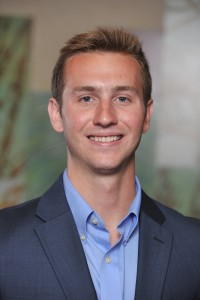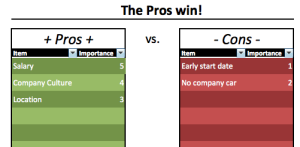 On Take Your Success, I regularly interview top-performing college students to understand how they’re successful, so you can recreate the success in your life. Take what’s helpful, dismiss what’s not!
On Take Your Success, I regularly interview top-performing college students to understand how they’re successful, so you can recreate the success in your life. Take what’s helpful, dismiss what’s not!
Jon Leist agreed to interview this week. He has an outstanding college pedigree, which includes serving as president of Pi Sigma Epsilon when they won the Top National Chapter Award this spring.
I can promise you Jon’s great achievements won’t end in college. He’s initially going to work as a consultant for Deloitte—and I believe his career potential is unlimited.
You might ask how am I so sure Jon will continue to succeed? I’m confident based on his answer about how he manages his time and values his goals.
If you’re interested in improving yourself (or simply want to be a consultant), this interview is for you.
Let’s get to it. And then I’ll go into my key takeaway.
——
Brian: What is the most important leadership lesson you learned from being president of the business fraternity Pi Sigma Epsilon (PSE) and its 162 members?
Jon: By far the biggest lesson I learned as the president of PSE was how to find ways for others’ goals to coincide with my own goals. In other words, I discovered that it is absolutely imperative to listen well and then consequently act. A lot of the role was about supporting and empowering others rather than pursuing my own agenda. I believe student organizations inherently differ from companies because nobody gets paid to be there or to be in a position there (except for student governments etc…). This means that organizational goal making cannot come from the top and trickle down. In retrospect there are three other major leadership takeaways I had:
- Be a net giver and not a net taker – Make other people’s success your priority
- Learn to respect the people most different from you… Even if you don’t agree with them
- Be a factor – If you’re not contributing you’re going to get by without a second thought
Brian: As a member of PSE, Student Venture Fund, and Delta Tau Delta, you obviously value getting involved in student organizations. Why?
Jon: In high school sports didn’t work out for me like I had hoped. I found myself working as a lifeguard to compensate for the time that I used to be spending at practices. It felt as if I was wasting my life away at that job where my brain, body and passions were just going up in smoke.
Therefore, as a freshman at Miami I wanted to start over completely anew. I made an active decision that I could define my own success and never get “cut” again. This mindset helped me play to my strengths. At first, I became involved with too many student organizations and learned the hard way that I couldn’t spread myself too thin. As a result, I figured out where I could make the most impact in my primary interest areas: business consulting, entrepreneurship, and socializing.
I walked into the “Meet the Business Organizations” recruitment fair not knowing if I wanted to join anything in 2011. I saw that the PSE booth was swarmed with freshman and it so happened the most charismatic people in the room were working it. Naturally, I put my name in their computers for recruitment. A few weeks later I found myself on the short-list of 29 or so recruits out of 400+ in the fall of 2011.
The seniors in PSE inspired me and I decided that I wanted to emulate their successes. Namely, Maggie Byrne and Ryan Smith were the most impressive speakers and leaders I had ever interacted with. At the time it felt so novel to even consider accomplishing as much as them. It was a no brainer to me that if I wanted to become similar to them, I had to surround myself with a lot of type-A and extremely motivated people. I kept that mindset which in turn motivated me to pursue consulting projects and to spend much of my time with PSE.
Although PSE was my first student organization, I felt that some things were missing in my life. Therefore, I joined Delt and the Student Venture Fund. The value of a fraternity I think can be pretty obvious for a 18-21 year old college student. The value of the Student Venture Fund was incredible because I was able to sit on the side of the table that Kevin O’Leary and Mark Cuban sit at when listening to real start-up pitches as a mere student. My dream is to one day launch my own firm(s) and this was an invaluable experience to see what goes into the due diligence process and how a new venture gets vetted.
Brian: How did you optimize your schedule to make time for all your responsibilities?
Jon: Haha this is a great question because I definitely got better at it as time passed. Once I figured out the class, homework and exam preparation side of college I tracked my time down to a science. I always keep my Google calendar up to date and literally log everything into it. I got so nit-picky at school I would even put study sessions or work-out times into the random 50 minute intervals between my meetings and classes instead of watching Netflix.
Now, I wake up and always have a holistic view of what I need to accomplish and where my free periods are which I leverage to get ahead. Further, I would do homework or term papers as I received them so come Friday, Saturday and Sunday I would be completely free to do whatever I wanted.
Brian: Why did you decide to be a consultant?
Jon: I decided to become a consultant completely by accident. After my first internship at a large company my sophomore year summer, I felt that I needed to be challenged more. I did my research during that summer on different jobs that interested me most by talking to Miami alumni. I narrowed my options down to two fields: investment banking and consulting. I made phone calls to recruiters the second I received my offer to go back to that corporation and the rest of everything fell into place.
My primary interest areas are in technology because I believe it has so much room for growth in our lifetime; particularly in alternative energy. Consultants get to work with a wide array of clients in substantially differing roles from project to project. In this way, I believe I can get the best and most eclectic experiences possible while simultaneously narrowing down my long-term career goals.
Brian: Can you tell the readers some of the additional benefits of being a consultant?
Jon: Consultants typically work really long hours and I will be spending much of my time at a client, in an airplane and in a hotel room. From a professional standpoint, I think it is invaluable that I will get to work with a large variety clients and experience so many different types of roles at such an early stage of my career. The trade-off for the frequent travel and longer hours are some really awesome perks.
Here are some standard ones that most of the bigger firms offer: Reward points for airlines and hotels, meal compensation while traveling, alternate travel to other cities on weekends, very competitive wages and bonuses and awesome work-life balance programs such as fitness subsidies. It is pretty common that consultants never have to pay a dime of their own money on travel expenses after working for a good amount of time. Personally this is an enormous pro because I love adventures and seeking out new places.
Lastly, one of the major benefits that helped me choose Deloitte Consulting over other firms is that they have an incredible program that could potentially completely pay for graduate school at a top 10 institution.
Brian: What advice/ resources would you give to a college student who wants to break into consulting?
Jon: Be a factor and get yourself out there… NOW. Consultants are very social people and the firm needs to know that they can trust putting you on a team in front of a client. Also, don’t become discouraged if you don’t get a consulting internship your junior year because they are very hard to come by. I consider myself very fortunate to have had one my junior year summer. I had experience in SAP from my corporate job and was able to translate to the consulting recruiter that not only I was interested in technology, but that I also had experience in developing the strategy behind system upgrades as well.
Consequently, I think the best advice I can provide to ensure that you know exactly what type of consulting you want to go into and explain how you have experience in that area so that recruiters can place you in the right interviews. Finally, look at case interviews as being easier than behavioral interviews because they seriously are… Don’t get intimidated at all by them.
Brian: Do you plan on getting your MBA? Why or why not?
Jon: Yes. I love learning and developing my skill-set. Therefore, when I go back it will be in order to provide the firm I join a higher ROI on myself as one of the company’s resources. Moreover, the network I will establish at an MBA program is priceless.
Brian: What hobbies or personal interests do you have?
Jon: I love being active outdoors. It can be golfing, biking, hiking etc… Anything outside and in the sunlight has my name all over it. Another thing I dabble with is individual stock picking and following the market. Many think it is way too risky but I have been relatively successful at it thus far.
Brian: Please share why you make it a priority to work out.
Jon: I have a sticky note on my desktop screen that has my top 2 goals at a point in time in addition to one overall life goal. For example my goals currently say:
- Score >700 on the GMAT
- Perform in top 5% of my start class
- Mind. Body. Soul.
The first two goals I continually update as I achieve them. However, the third goal is one that I hold especially important. I believe in order to live the fullest life possible, I need to maintain a balance of mind, body and soul. It may be cliché, but this constant reminder helps intrinsically motivate me to get up an hour early to go for a run or lift weights.
——
While there are a handful of insights from this interview, I’m going to highlight Jon’s focus on people.
For example, Jon told us about matching his goals with others’ goals to better his student organization, surrounding himself with motivated people, not procrastinating on homework to hang out with his friends, making calls to recruiters, how consultants are social, and the network gained from getting a MBA (there’s probably more examples, but you get the point).
His people-oriented mindset is not a surprise because it is a common characteristic of those who are successful. Achievers recognize the power of being around positive and intelligent influences. And while the world is becoming more digital every second, I believe a people-focused mindset will be forever important to success.
So, my application for you is to build the habit of focusing on people. Interact with people in, or related to, your future work as much as you can. Get practice connecting professionally and learning from others. Look for win-win situations where you can help people, and then you’ll naturally receive opportunities from your good-will.
Specific examples of connecting with professionals include shadowing someone at work, setting up a coffee meeting with employees who work where you might want to, and calling your college’s alumni to share the job you want and listen to their advice on how to get it.
(For a special tip, most people won’t do the actions above. So if you can do this, you’ll be far ahead of your peers when looking for an internship or job.)
Also, because research found that writing your goals down improves your chances of achieving them by 42 percent, I recommend you take five minutes to write people-oriented goals for this week. Do it right now, before you forget.
Lastly, stay positive even if you face rejection when reaching out to professionals. Take joy in the fact that initial struggle correlates with eventual success.
Readers, what did you find most interesting from Jon? Is there anything you would want to ask him? Do you have any hesitation in reaching out to professionals in your field, and why?


